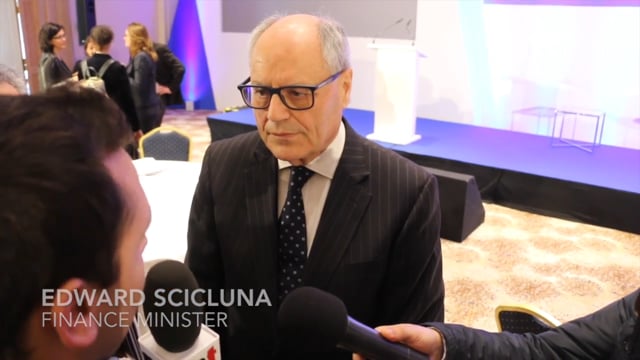[WATCH] Finance Minister hints MFSA will go further in limiting Pilatus Bank operations
“At the moment there aren’t reasons in the MFSA’s radar to remove the bank's license, but it is up to them to decide,” Scicluna said


Pilatus Bank is currently being monitored by the Malta Financial Services Authority, which is ensuring that no assets be taken out without the Authority’s permission, Finance Minister Edward Scicluna said today.
Asked about the issue of Iranian Ali Sadr Hasheminejad, the former chairman of Pilatus Bank whose operations were frozen by the MFSA yesterday, Scicluna explained that the Authority's next steps would be to decide on the questions of what would happen to the bank’s deposits, whether an administrator would be appointed, if a new chairman would be chosen, and other matters.
“There is a legal framework and the MFSA have to be prudent and act according to law and to circumstances,” Scicluna said.
“There is no chairman [right now], but the directors are still there and they are restricted in what they can do with the bank’s assets.”
Following the news that Hasheminejad had been charged in the United States with evading sanctions by hiding Iranian beneficiaries of dollar payments, the MFSA decided that, according to law, he was not fit and proper, the minister said. It subsequently removed him from being director and chairman of the bank, and revoked his and all the other directors’ voting rights and their ability to move assets.
There was now a moratorium in place on the bank's transactions, he noted.
“We haven’t received anything from the US government so far. When they do come, they can have the security of mind that the assets are there,” he said.
“At the moment there aren’t reasons in the MFSA’s radar to remove the bank's license, but it’s up to them to decide. They said they can take other measures as required.”
The MFSA was currently getting the advice of the European Central Bank on the matter, which is why it had taken some time for its decision on Hasheminejad to be made, he highlighted.






.jpg)













.png)


